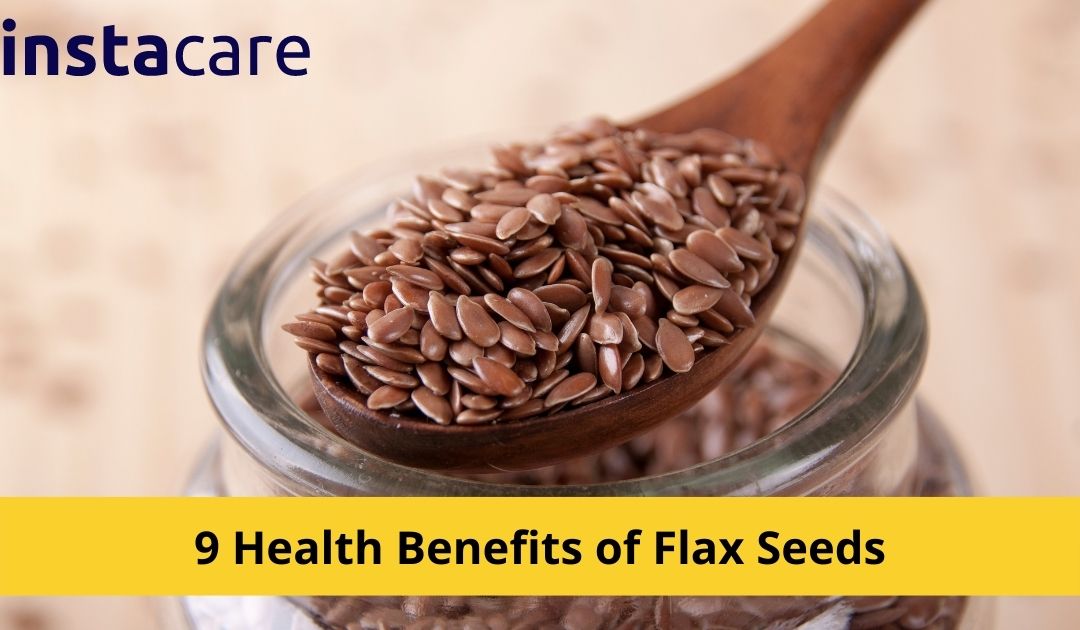Flaxseed is a versatile ingredient that may improve the taste and texture of any recipe due to its mild, nutty flavor and crisp, crispy consistency. One way I put this seed to use is in my morning smoothie. It's also great for pancake batter, homemade vegetarian burgers, and overnight oats. Furthermore, it is high in nutrients and has been linked to various health advantages.
Flaxseed is one of the oldest cereals on the planet. Two kinds are brown and golden, and both are very healthy. One serving contains a good quantity of protein, fiber, omega-3 fatty acids, and other essential vitamins and minerals. Thiamine, a B vitamin important for energy production and cellular function, is rich in flaxseed. It's also high in copper, which aids with cognitive development, immunological function, and energy metabolism.
Flax seeds are little edible seeds produced by the flax plant in North America. These seeds are packed with nutrients like heart-healthy fats, fiber, plant protein, and important vitamins and minerals, adding a nutty flavor to recipes.
View More: Amazing Health Benefits of Banana You Must Know About
Health Benefits
Flaxseed and flaxseed oil are high in protein and, according to the United States Department of Agriculture's MyPlate guidelines, have been linked to various health benefits, including:
Because of its high fiber content, flaxseed can aid digestive disorders such as constipation.
Lowering LDL cholesterol levels: Flaxseed has been related to lower LDL cholesterol levels, implying it can help avoid other health conditions like heart disease and stroke.
Manage some cancers: Flaxseed contains anticancer chemicals known as lignans, which are polyphenols that may aid in treating certain cancers, including breast cancer.
Weight loss: This reported benefit is primarily due to flaxseed's fiber, which can help you feel full.
Enhancing glucose tolerance: Insulin deficiency, or the failure to efficiently use the hormone insulin to move carbohydrates to cells, is a feature of type 2 diabetes, and some study indicates flaxseed oil may assist with this issue.
Blood pressure reduction: A 2016 meta-analysis of 15 trials published in Clinical Nutrition discovered that flax seeds decreased blood pressure, especially when consumed for 12 weeks or longer.
Lowering cholesterol levels: A 2014 study published in Biomedical Journal discovered that eating about three tablespoons of roasted flax seed powder daily for three months resulted in significant reductions in total cholesterol and LDL (aka "bad") cholesterol levels compared to a placebo group in 50 adults with high cholesterol. They also noticed a rise in HDL (commonly known as "good") cholesterol levels.
Stroke prevention: Flax seeds are high in alpha-linolenic acid (ALA), a type of healthful fat that may help prevent strokes, according to a 2015 study.
Lowering the cancer risk: Flaxseed is high in omega-3 fatty acids. According to research by Trusted Source, they may help prevent the growth of certain cancer cells. Flaxseed also includes lignans, antioxidants that may decrease tumor growth by stopping new blood vessels from developing. Lignans are a form of phytoestrogen, a plant-based substance with estrogen-like properties. There has been some fear that phytoestrogens may raise the risk of breast cancer, but new research reveals that they may protect against it.
View More: 7 Amazing Health Benefits Of Grapes
Tips for including flaxseed in your diet:
- Add a tablespoon of ground flaxseed to your hot or cold breakfast cereal.
- Add a teaspoon of ground flaxseed to mayonnaise or mustard when making a sandwich.
- Mix a tablespoon of ground flaxseed into an 8-ounce container of yogurt.
- Bake ground flaxseed into cookies, muffins, slices of bread, and other baked goods.
Beneficial throughout the context of cancer
Remember lignans, those high-antioxidant flaxseed compounds? According to multiple studies, flaxseeds may be effective cancer fighters, including one that looked at over 6,000 women in Canada and found that those who ate flaxseeds regularly were up to 18% less likely to get breast cancer. Women who had gone through menopause seemed to profit the most. In small trials, flaxseeds have also been linked to a decreased incidence of prostate cancer in men. However, the evidence is contradictory, and additional research is required.
Conclusion
Flax seeds are high in fiber, magnesium, and iron, which are beneficial to your health. Flax seeds have been shown to enhance gastrointestinally and lessen cancer risk.
Flaxseed is widely used to prevent or treat and assist metabolism. Flaxseed may also reduce total cholesterol and LDL (or "bad") cholesterol, reducing the risk of cardiovascular disease. Like other high-fiber meals, flaxseed should be ingested with plenty of water. Before choosing to take any multivitamins, consult your physician.
Please book an appointment with the best Nutritionist in Lahore, Karachi, Islamabad, and all major cities of Pakistan through InstaCare, or call our helpline at 03100002273 to find a verified doctor for your disease.











